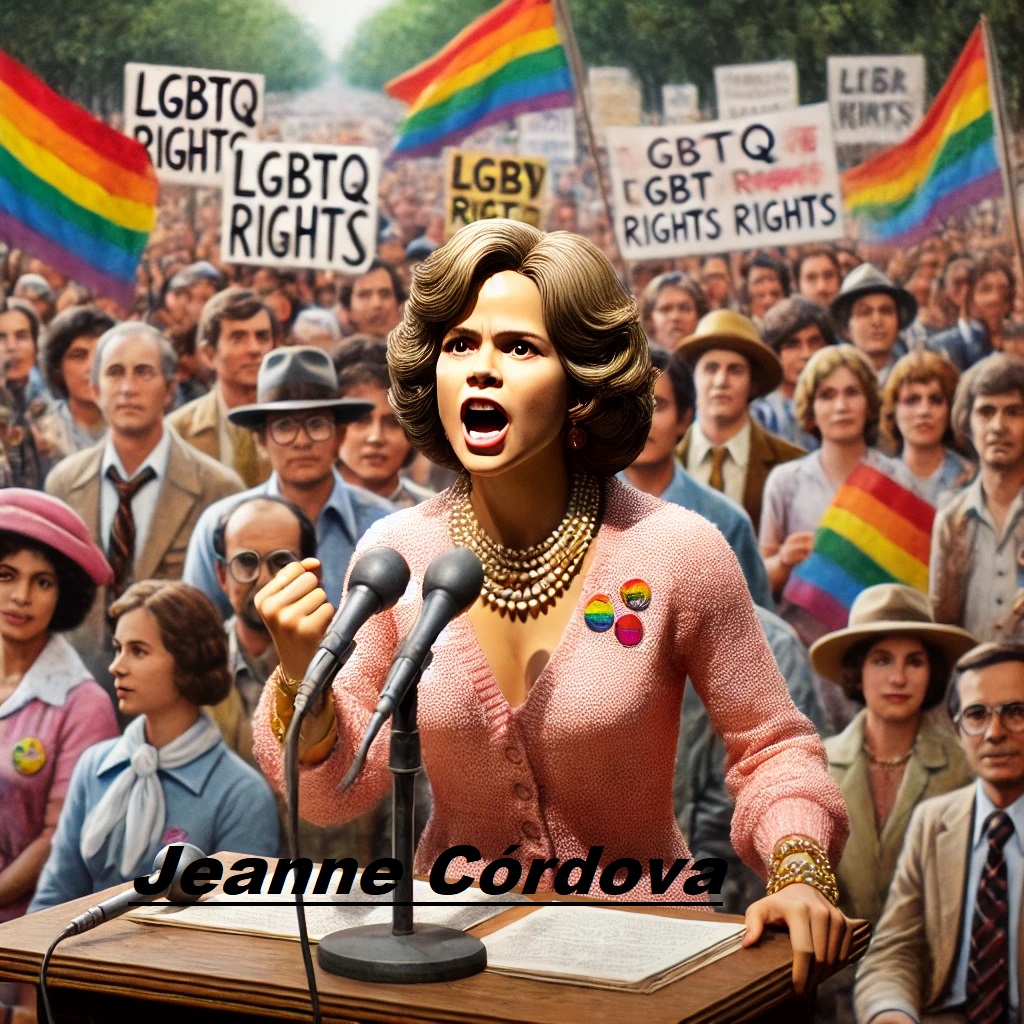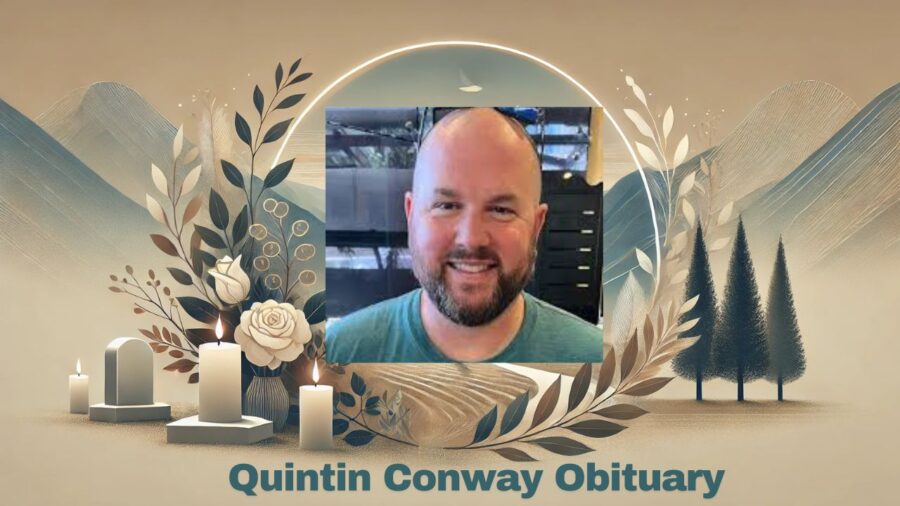Jeanne Córdova is celebrated as one of the most influential LGBTQ activists and feminist icons of the 20th century. Her fierce dedication to social justice, combined with her pioneering spirit, helped shape the LGBTQ movement at a time when gay rights were rarely discussed in the mainstream. Through her work as a writer, activist, and community organizer, Córdova left an indelible mark on both the LGBTQ and feminist movements. She remains an inspirational figure for anyone committed to justice, equality, and inclusivity.
Introduction
Jeanne Córdova’s contributions to LGBTQ rights and feminist movements have earned her a prominent place in history as a champion for equality and social justice. Her life was marked by an unwavering commitment to challenging societal norms, advocating for the LGBTQ community, and carving out spaces where queer women could find community, solidarity, and empowerment. Through her work in journalism, activism, and literature, Córdova transformed how society viewed gay rights, particularly in relation to lesbian identity and the broader feminist movement.
Who Was Jeanne Córdova?
Jeanne Córdova was an American writer, activist, and proud lesbian feminist who became a key figure in the LGBTQ rights movement during the 1970s. Born in Germany and raised in Southern California, Córdova’s life was shaped by a deep sense of justice and a drive to speak out against inequality. As one of the pioneering voices in the lesbian and gay liberation movement, Córdova believed in challenging societal boundaries and inspiring future generations to continue the fight for equal rights.
Early Life
Córdova’s early years were marked by cultural complexity and self-discovery. Growing up in a Catholic household, she was encouraged to pursue her own beliefs, which led her to question traditional roles and expectations. Her journey to embrace her identity as a queer woman was transformative. It not only shaped her personal life but also set her on a path toward activism. For Córdova, embracing her lesbian identity was about more than just personal liberation—it was about fighting for a world where everyone could feel accepted.
Path to Activism
Córdova’s activism began in the late 1960s when she witnessed firsthand the challenges facing the LGBTQ community. After coming out, she quickly saw the inequalities that plagued society and the limited acceptance faced by LGBTQ individuals. Motivated by a desire for change, she became actively involved in organizing, speaking, and advocating for queer rights. Her passion was fueled by personal experience, and she channeled this energy into causes that would uplift and unite the LGBTQ community.
Breaking Boundaries: Founding The Lesbian Tide
Córdova’s activism took on new dimensions in 1971 when she founded The Lesbian Tide, a newspaper dedicated to lesbian rights and feminist issues. This publication became a significant platform, elevating the voices of lesbian women and providing a space for them to address issues that mainstream media largely ignored. With The Lesbian Tide, Córdova helped shine a light on the struggles, aspirations, and achievements of lesbian women, emphasizing that the LGBTQ movement included multiple voices and perspectives.
Impact of The Lesbian Tide
As a pioneering queer media platform, The Lesbian Tide played a vital role in shaping LGBTQ media. It fostered a sense of solidarity and community among lesbians, providing resources and insight on how to navigate a society that was often hostile to their existence. The publication became a rallying point for activists, encouraging more lesbian women to speak out and participate in the gay liberation movement. The Lesbian Tide also inspired similar publications and media initiatives, establishing Córdova as a pioneer in LGBTQ journalism.
Feminism and Intersectionality
Jeanne Córdova understood the importance of bridging LGBTQ and feminist causes, believing that the two movements had much in common. Her approach was inclusive and intersectional, addressing issues that spanned gender, sexuality, and race. She advocated for an interconnected vision of feminism that included all women, recognizing that the struggles of LGBTQ women were deeply intertwined with those of heterosexual women. Through her work, Córdova expanded the feminist movement, encouraging it to be more inclusive and intersectional.
Jeanne Córdova Writing and Literature
Córdova’s written work extends beyond journalism and into LGBTQ literature. Her memoir, When We Were Outlaws, is a powerful account of her life as a radical activist in the 1970s. The book captures the intensity of the LGBTQ rights movement during that period, along with her personal journey of love, identity, and activism. Her writing continues to resonate with readers, offering both a historical perspective on the LGBTQ rights movement and a reminder of the courage required to stand up for one’s beliefs.
Role in LGBTQ Organizations
Beyond her writing and publications, Córdova played an influential role in several LGBTQ organizations, often serving on boards or as a founding member. She was known for her mentorship, frequently guiding young activists and helping them find their voices in the movement. Her commitment to building an organized, resilient community was integral to the success of many LGBTQ initiatives in the 1970s and 1980s. Córdova’s legacy includes not only her direct contributions but also the countless individuals she inspired to take up the cause.
Jeanne Córdova and the Gay Liberation Movement
During the 1970s, the gay liberation movement was gaining momentum, yet it remained an uphill battle. Córdova’s role in the movement was defined by her willingness to confront societal norms and push for systemic change. She advocated for the inclusion of lesbian voices in broader LGBTQ organizations and worked tirelessly to create spaces for women within the movement. Her activism highlighted the need for intersectional representation, ensuring that LGBTQ issues were addressed from multiple perspectives.
Challenges Faced Jeanne Córdova
Córdova’s activism came with significant challenges. She faced societal backlash and often sacrificed personal comforts for the sake of her beliefs. She struggled to balance her personal life with the demands of activism. Particularly as she worked to maintain The Lesbian Tide and support various LGBTQ causes. Despite these difficulties, Córdova’s resilience kept her moving forward, reinforcing her commitment to a just and inclusive society.
Queer Media Pioneer
In a time when queer voices were rarely heard, Córdova took bold steps to ensure that the LGBTQ community had its own media outlets. Her work in queer media provided LGBTQ individuals with representation and resources that were otherwise unavailable. Córdova’s contributions to LGBTQ journalism laid the foundation for a new era of queer media. Inspiring future publications and platforms dedicated to LGBTQ issues.
Advocating for Women’s Spaces
Córdova advocated tirelessly for spaces where women could come together, both as feminists and members of the LGBTQ community. Her efforts included organizing conferences, promoting women’s rights, and pushing for the establishment of women-centered spaces that encouraged community building. Córdova’s work emphasized the importance of safe spaces for women, especially those marginalized by both their gender and sexual orientation.
Jeanne Córdova’s Philosophy
Jeanne Córdova’s philosophy was rooted in equality, inclusivity, and activism. She believed in the transformative power of community and saw social change as an achievable goal through sustained efforts. Her values centered around dignity, respect, and a determination to address inequality at its roots. Córdova’s approach to activism was both pragmatic and passionate, embodying a belief that society could be transformed for the better.
Legacy of Inclusivity
Inclusivity was a cornerstone of Jeanne Córdova’s activism, and her legacy reflects this commitment. Her work inspired activists across generations, many of whom continue to carry forward her vision. LGBTQ community that welcomes and celebrates diversity. Córdova’s impact is evident in today’s LGBTQ organizations. Which benefit from her pioneering efforts to make inclusivity a foundational value.
Honoring Her Legacy Today
The legacy of Jeanne Córdova lives on in the LGBTQ community and beyond. Modern activists and organizations continue to draw inspiration from her life’s work. Building on the foundations she laid for queer rights and feminist causes. Through events, scholarships, and continued activism, Córdova’s influence endures. Reminding us of the power of a single voice to create lasting change.
Frequently Asked Questions Jeanne Córdova
What was The Lesbian Tide and why was it important?
What inspired Jeanne Córdova’s activism?
How did Córdova’s work influence LGBTQ media?
What is the lasting impact of Jeanne Córdova’s work?
Conclusion Jeanne Córdova
Jeanne Córdova’s life and work remain a source of inspiration for those fighting for equality, inclusivity, and justice. Her contributions to the LGBTQ and feminist movements transformed lives. Empowering others to live authentically and advocate for a more just society. Jeanne Córdova’s legacy is a testament to the power of activism, resilience. The enduring impact one individual can have on history.











